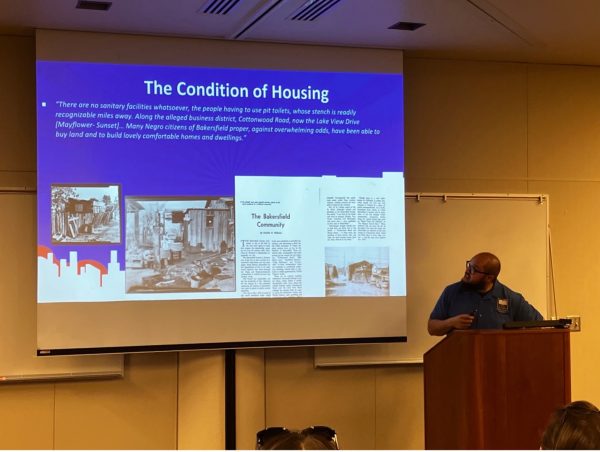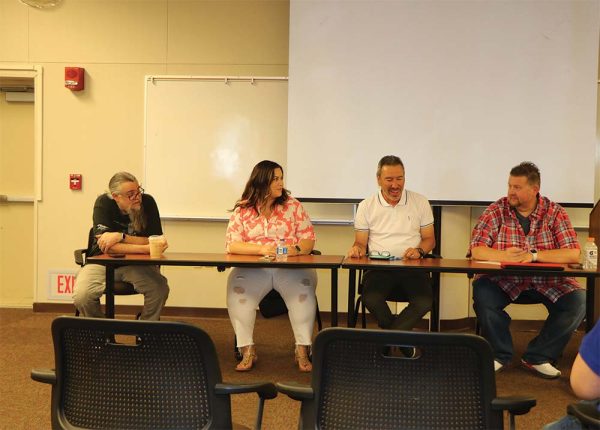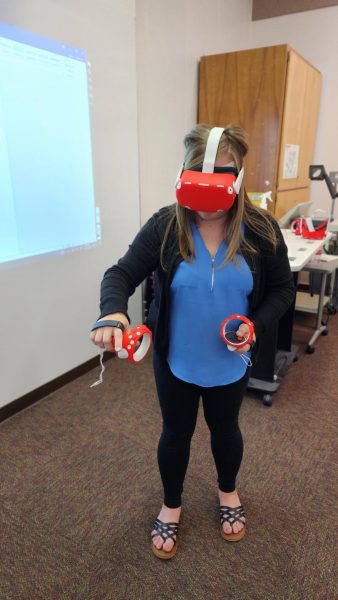CSUB hosts a webinar discussing the race, gender, and biases presented in medicine practice
March 24, 2021
The Kegley Institute of Ethics held a webinar hosted by CSUB with panelists: Dr. Sharon Okonkwo- Holmes, Dr. Keisha Ray, and Dr. Kateena Addae- Konadu covering race, gender, and bias in medicine.
The panelists all shared their experiences and insights being in the medical field and the biases they’ve faced as well as their own biases they carry. Dr. Kateena Addae-Konadu, physician of fraternal and fetal medicine at Duke University Medical School explained that the field is faced with various biases. Dr. Kateena referred to these biases such as a promotion being taken away although having the proper degree or qualifications or having to bring together much more information than others before one’s medical decisions can be accepted. These biases can later manifest or lead to anxiety, second-guessing yourself, or not being confident in the workspace.
Dr. Kateena believes this is when emotional intelligence, self-care, and self-improvement become key because it leads to longevity and not burning out in the field. Dr. Keisha Ray, an assistant principal at medical school in Houston, Texas, gave her input on biases stating that there can be many different biases people hold; such as conscious biases that one is aware of versus biases people may not see that they hold.
Some biases can be the stereotype people hold against gender, people of color, transgender people, the poor, or even against those overweight. Biases vary from specified groups of people and lead to discriminatory behavior known as bullying, racism, or acts of mistreatment.
Dr. Kateena shared how she was looked down upon when she asked her advisor about their thoughts on applying to medical school. The advisor told her she was not a well-equipped candidate to join the medical field. Dr. Kateena says she felt like her voice wasn’t heard in a mostly male-dominated field. However, Dr. Sharon Okonkwo Holmes, the family physician of Kaiser Permanente City Medical Center, stated that everyone carries biases.
A bias shows people right from wrong or good from bad because they overlook these biases as something they’re not quite suited with. Dr. Holmes says she tested her own biases by testing in the Harvard inquisitive association test to help her identify those biases she did not know she had. Identifying biases helps combat discriminatory behaviors.
Dr. Ray explained how the pandemic has to lead to further biases because of women of color being turned down for covid tests although having symptoms. The story of an African American teacher from New York was mentioned by Dr. Ray explaining how the woman was declined for a test for covid to save her life and instead was told it was just symptoms of anxiety.










